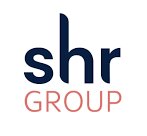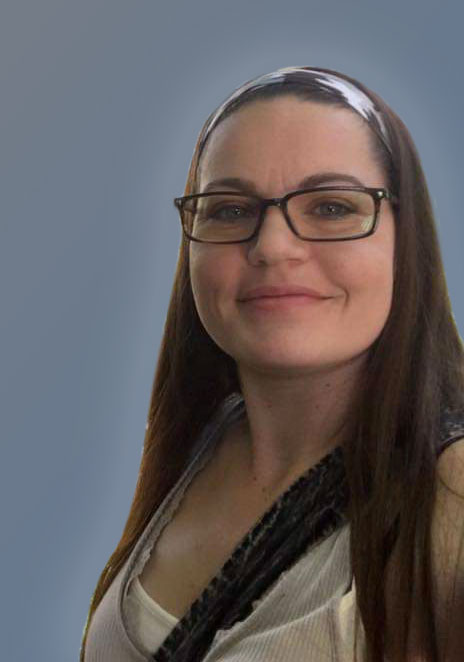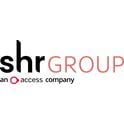How to Personalize the Guest Journey and Set Your Hotel Apart

Over the next 12 months of recovery, every dollar of revenue coming into your hotel counts. “Winning” means bringing in more share of revenue than your competitors. One of the most impactful ways to drive more revenue and make the biggest impact on your guests is by personalizing their experiences all along their journey, from marketing to booking, all the way through their entire time on your property, and then following up once the guest has checked out.
Fortunately, when implemented and operated properly, CRM technology can revolutionize the way you connect with your guests. Personalized and targeted marketing will convert at a higher rate. Tailored on-property experiences will “wow” the guest and lead to more revenue spend per guest. Personalized post-stay communications will increase your review scores. All together, these unique guest connections will drive loyalty, allow you to charge higher ADRs, position your hotel to lead its comp set in recovery and set your hotels up for long-term success.
A CRM allows hotels to consolidate profile data and put it in a view that is meaningful for recognition, personalization and communication. A strong CRM will provide a place to dig into these details, look at who your guests are and what their activities are in your hotel – and then be able to drive targeted communications to them based on those activities. It will allow the hotelier to see a guest’s value, based not only on their frequency or how much they spend but on booking, cancellation, upsell and revenue behaviors all together.
“Companies that do this well see an increase in overall revenue. Connecting throughout the journey and having those connections be meaningful and useful drives long-term guest value – by relationship building and compelling guests to act,” says Allegra Medina, director of product management at SHR.
 We recently caught up with Medina to discuss how Maverick, SHR’s well-integrated, cloud-based CRM tool, is positioned to catapult hotels into providing the next generation of guest experiences.
We recently caught up with Medina to discuss how Maverick, SHR’s well-integrated, cloud-based CRM tool, is positioned to catapult hotels into providing the next generation of guest experiences.
Q: Why is connecting with guests at different points along their journey so important?
Medina: There are a variety of psychological reasons why personalization and connecting with guests throughout their journey in personalized ways is important, but I think for hoteliers you can see why it’s valuable in the results. Personalized marketing efforts drive growth. They do this by building relationships with customers. Keep in mind that true personalization isn’t as simple as saying, “Hello Allegra” and then blasting me with unrelated offers. It means knowing me, knowing my behavior as it relates to you and what you have to offer, and then customizing that messaging or interaction based on that information. This is why having an integrated CRS to your CRM is so valuable, because it lets the CRM tell the Booking Engine or the Call Center application who the guest is, and what to show them in their path.
Q: What data needs to be shared between the CRS and CRM?
Medina: In a perfect world, the reservation record in CRS should be shared with the CRM in its entirety. This should mean not only that the CRM receives each of the fields in the reservation and the guest profile associated with the reservation, but the field definitions as well. Many times in CRM or even PMS connectivity, there are fields for reservations data such as Rate Code or Room Type or Deposit and Cancel Rule codes, but they are just codes and the CRM would need to either exclude usage of them or manually map every code that exists into the system. I have seen it done both ways, and both ways can be challenging. Another item that is really valuable to share between the two systems is guest profile information outside of a reservation record. This allows for the CRS to be aware of a known guest by way of authentication or profile search so that the guest profile can influence the rates returned, can influence how a call center agent recognizes a guest, can provide discreet offers based on login, membership type, membership tier, or reward.
Q: How should hotels be personalizing guest experiences differently on the various booking channels?
Medina: On your branded website, your booking engine, your call center application – knowing and recognizing the guest, giving them access to manage their information, serving them rates, rewards, offers that are customized to them based on their activity and cannot be found on other channels (without risk of parity concerns with your OTA channels) are really valuable.
For the PMS, having an integration to the CRM to view CRM profiles and key information is helpful in the front office when booking direct. When this isn’t possible because not all PMS systems allow for this behavior, having a way to recognize them by way of the CRM is helpful. This allows the front office to recognize the guest during direct-booking opportunities but even more importantly once that guest is on property. A great booking experience is the lead-in here, and the property gets to follow through on that relationship, building from the moment of check in to check out, using CRM data to help facilitate the actions.
Q: Can hotel companies with a portfolio of hotels track guests as they move between different properties?
Medina: Yes. We recognize that even in a single brand or hotel group there are sometimes needs for data to be shared and sometimes not. Maverick accounts for two methods of setup:
One – we can build the brand with all hotels included, where all hotel profiles are shared. This allows guests to be viewed at a brand level, while still being known as a guest of a specific hotel or grouping of hotels within the brand. Cross-hotel utilization is a big deal for some hotel groups, and so you need to be able to see one guest profile with all hotel activity associated – you can segment them by property still for reporting or marketing purposes but still see a whole view of the guests value to the brand.
Two – we can build all hotels within that brand as individual properties, where none of the data is shared. This allows for management groups to have a single chain within their booking path, but to treat guests and guests’ profiles independent of that brand. It would mean that none of the profile history is shared between hotels and the cross-hotel utilization cannot be seen at the brand level, but also means that each hotel has only its own data for reporting or segmentation.
Q: How are hotels using past stay history and preferences to tailor the offers we present to guests?
Medina: Typically, hoteliers use past reservation activity to determine marketing lists or who to communicate with. Depending on the system they use, they may get more targeted within that information by filtering specific guests on specific reservations for specific reasons but, in general terms, it is used to send offers such as, “You’ve stayed with us before, we miss you, here’s an offer.”
Maverick supports using history in a variety of ways. In Maverick, the system can use history to understand guest behavior and use AI to determine guest scoring for profiles based on activity. This means that I can determine based not only on room spend or frequency or quantity of reservations, but also frequency of cancellations or quantity and amount of non-room spend a particular grouping for customers to fall within, from my best guest to my lost guest and everything in between. Maverick can also communicate with guests based on activity or engagement with previous marketing activity.
Where are you at in your personalization efforts? Whether or not you have a loyalty program, a CRM will allow you to start collecting guest information, offering fenced rates and begin recognizing guests while they’re in the booking process. There is always more opportunity to build better guest relationships, which will undoubtedly lead to increased revenue. Position your hotels to lead their markets in recovery by building better guest connections all along their journey.
For more resources on how hoteliers are using technology to position their properties for recovery, please visit SHR’s Beyond Recovery resources page.
